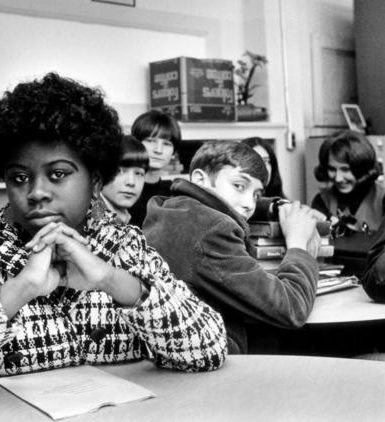
Linda Brown Of SCOTUS Fame Dies At 76…America Needs To Reflect
I’ll admit it. I did not know that Linda Brown was still alive. Okay, I didn’t know who Linda Brown was. Of course, I knew about the landmark Supreme Court Case Brown vs Board of Education of Topeka, Kansas. If you aren’t familiar with that case, I want to say “shame on you” but instead, I will say “google it”. That case essentially decided that discrimination based purely on race was unconstitutional and therefore illegal. I won’t attempt to analyze the legal aspects of the case. I won’t even attempt to chronicle the impact of the case and the changing landscape of race in America since the ruling. Instead, I want to say this. Wow. The woman at the center of a case that seems like it happened in ancient history was still alive a few days ago. And she passed at the age of 76.
One of the principles of the Whiskey Congress Podcast is open, honest talk about race in America. As such, one of the obstacles that regularly gets discussed is the tendency among white Americans (particularly those in my age demographic) to uncomfortably dismiss the subject of racism in America as a thing of the distant past. It is uncomfortable to acknowledge that societal prejudices still exist and it is comforting to deflect these issues as ancient history. That is why I was shocked to learn that Linda Brown was only 76 when she passed away yesterday. As a society, there are two takeaways from this. One, we have come a long way since the landmark Supreme Court case. Two, the demons of legal racial discrimination are not as far back in our history as we would like to think and we are still dealing with the elements of our Country’s original sin today. The only way to solve a problem is to admit that it exists. We have made a lot of strides. We have hit some bumps along the way. We need to keep moving forward and as part of the Whiskey Congress Team, I hope I can be part of the solution. Cheers.
Linda Brown wanted to go only to the Sumner School. But she was black, and the Topeka, Kansas, elementary school four blocks from her home was segregated, open to only white students.
“I didn’t comprehend color of skin,” she said later. “I only knew that I wanted to go to Sumner.”
Brown, a third-grader who simply wanted to avoid a long walk and bus ride and join her white friends in class, went on to become the symbolic center of Brown v. Board of Education, the transformational 1954 Supreme Court decision that bore her father’s name and helped overturn racial segregation in the United States.
Peaceful Rest Funeral Chapel in Topeka said Brown, who used the name Linda Brown Thompson, died March 25 at 75. Additional details were not immediately available. The Topeka Capital-Journal, which confirmed the death with her sister Cheryl Brown Henderson, reported that she was 76.
The most famous Supreme Court case in American history bore Brown Thompson’s last name almost by chance. Topeka, a city that was less than 10 percent black at the time of the case, had integrated high schools and had begun integrating its middle schools. Her father – the Rev. Oliver Brown, an assistant minister at St. Mark’s African Methodist Episcopal Church – was just one of 13 plaintiffs who sought to ensure the city fully integrated the rest of its schools.
He was recruited by the NAACP, which had organized four other class-action lawsuits challenging high school segregation in South Carolina, Virginia, Delaware and the District of Columbia. According to the Brown Foundation, which promotes the history of the case, Oliver Brown was named the lead plaintiff “as a legal strategy to have a man at the head of the roster.”



